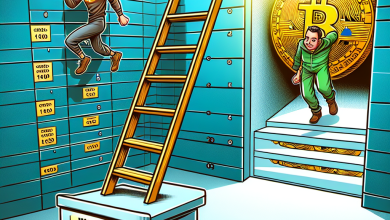Star investor Bill Gross recommends buying US Treasuries
The permanently low interest rate policy of the major Western central banks and the Bank of Japan after the financial crisis has worn down many savers – and washed them down. In the interest-free years, the actual importance of interest as the price for borrowing money and as a measure of a debtor’s creditworthiness receded into the background.
US Treasury Secretary Janet Yellen warns that her government could run out of money as early as June 1 if the US Congress does not raise the current $31.4 trillion debt ceiling in time. US President Joe Biden and House Speaker Kevin McCarthy are meeting at the White House today to discuss the issue. McCarthy, a California Republican, insists on spending cuts in exchange for raising the debt ceiling. Biden wants the debt ceiling to be raised with no strings attached.
The political circus in Washington and Yellen’s warning have had an impact on the bond market. The nervousness increases. Yields on short-dated US Treasury bills with maturities of less than one year, so-called Treasury bills, have soared to an average of 5.24 percent for remaining maturities between one month and three months. US government bonds with a remaining term of ten years, on the other hand, yield only 3.48 percent. The reason for the difference in yields is clear: if the USA defaults, securities with shorter remaining terms will not be serviced first, in other words: the shorter the remaining term, the higher the risk.
US star investor Bill Gross finds the risk negligible and recommends buying short-dated US debt securities. For years, the co-founder of the asset manager Pimco managed what was then the world’s largest bond fund, Pimco Total Return. His investment success earned Gross the nickname “Bond King”. Gross, whose personal wealth is estimated at $1.6 billion by US magazine Forbes, is convinced that the debt ceiling problem will be solved. “That’s ridiculous. It always gets solved, not that it’s 100 percent certain, but I think it gets solved,” Gross told Bloomberg Television.
If history repeats itself and the debt ceiling is raised again by Congress on the last meter, then Gross Investmentidee would actually be very lucrative, but especially for investors who calculate in dollars. If they want to risk this gamble, investors from the euro area have to bear a currency risk in addition to the default risk.
Also read: How much longer can America pay its bills?
We did the math – without commitment, of course. To do this, we first need a suitable bond. We are looking for US government bonds on the Stuttgart stock exchange with a remaining term up to the end of the year. 40 papers are displayed that can also be traded by private investors. The minimum denomination for all paper is $100. We choose a security with a coupon of 1.375 percent and maturity on August 31, 2023. Projected over the year, this promises us a return of 5.41 percent (ISIN: US9128282D10).
We actually paid $9891 for a face value of $10,000. In addition, there would be accrued interest on the nominal amount of 0.271 percent, i.e. $27.10. Makes $9918.10 in total. Since we are euro investors, we have to convert at the current exchange rate of 1.09818 dollars and would come to 9031.40 euros. On top of that, fees from our broker Comdirect: EUR 4.90 basic fee, EUR 22.58 order commission (0.25 percent of the order volume), and because we want to buy on the Stuttgart Stock Exchange, an additional EUR 2.50 stock exchange fee. Our debut in the world of Bond kings made a total of 9061.38 euros.
Now we have to hope that the USA will remain solvent until the end of August and that the dollar will not collapse. So what can we expect at maturity?
We got $10,000 plus $137.50 from the coupon, so $10,137.50. Converted to today’s dollar exchange rate, that made 9231.18 euros. The bottom line is that we would have earned 169.80 euros in 114 days. That would be pretty okay. But when do we lose? Sure, if US Treasury Secretary Yellen has no more money. In this case, we don’t really care about the dollar either. Elsewhere, we made losses if the dollar fell below $1.11876 per euro.
Of course, we would like to take currency gains, but short-term currency forecasts are difficult. Well, should Congress agree on the final score, the dollar could benefit, at least in the short term. We leave it anyway and open a money market account. There are three percent for new customers over six months – guaranteed and without currency risk.
Also read: This is how savers benefit from the turnaround in interest rates





